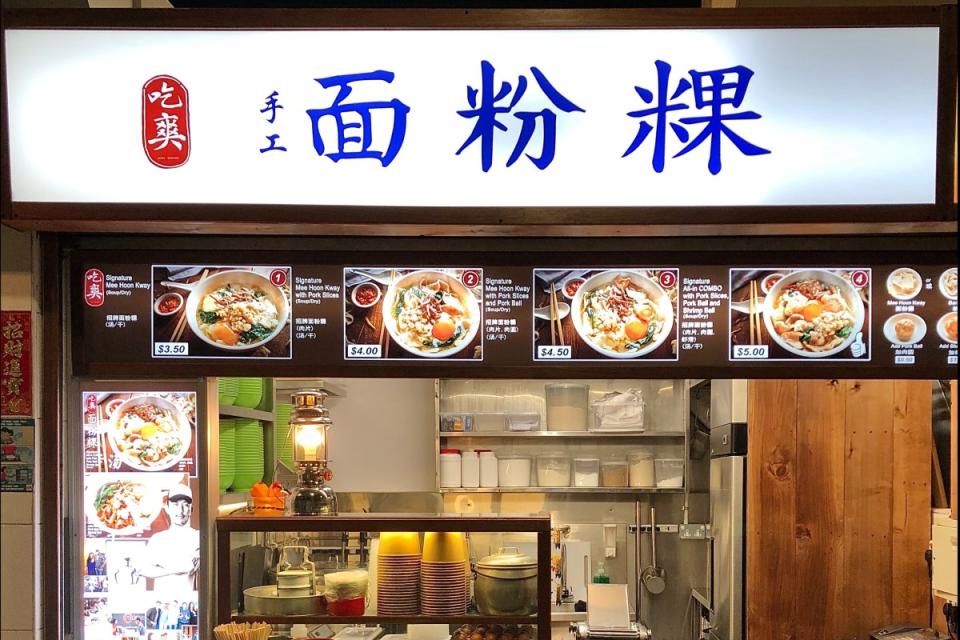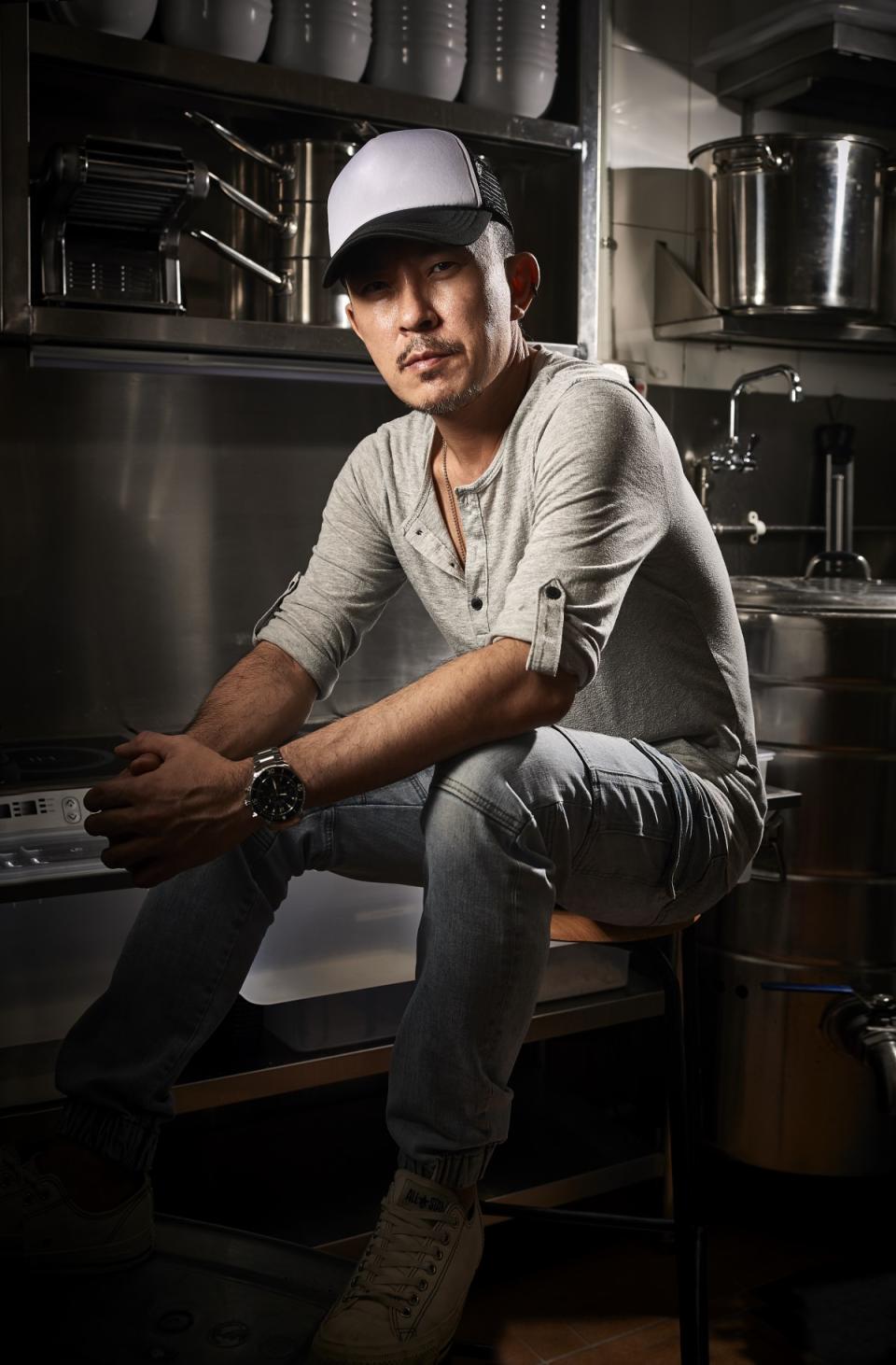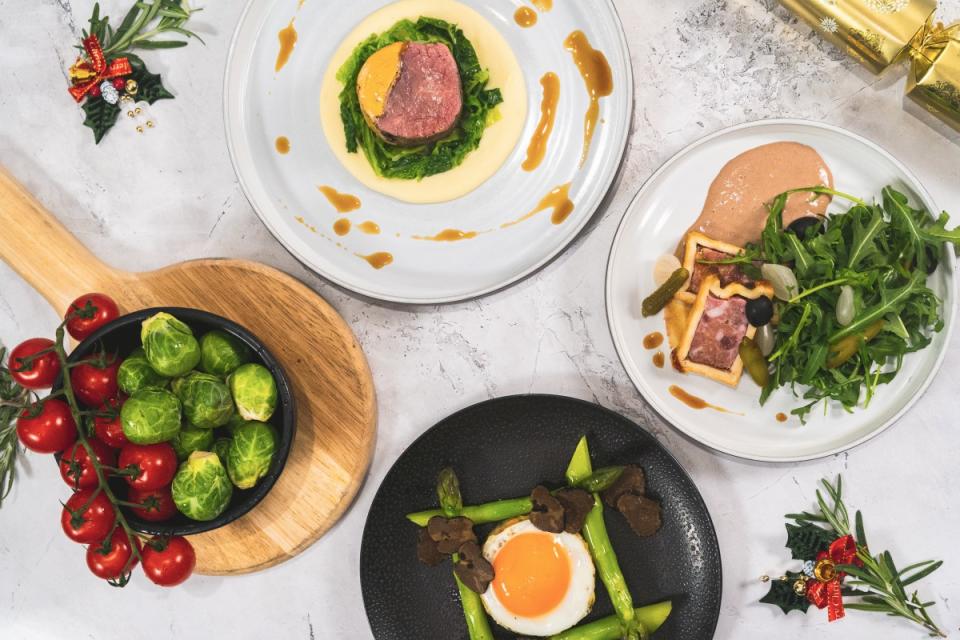INTERVIEW: Chef Aaron Wong, Jiak Song Mee Hoon Kuay — "It's the way a hawker stall is run that needs reinventing"

It would be fair to say that the Internet was set abuzz when news broke that Aaron Wong, top five finalists of MasterChef Singapore, has set up shop selling Mee Hoon Kuay at Telok Blangah Crescent. Prior to Mee Hoon Kuay fame, many know Aaron as that home cook on TV who’s slightly brusque, a straight-talker, but incredibly serious about his passion for local food.
The first time I met Wong was through his food at a pop-up event at Ding Dong where he created the Sanshui Chicken—a rectangular block of Chicken terrine inspired by the flavours of Hainanese Chicken with a ginger-garlic gelée that left me reeling in pleasure. One year later, with a well-run kitchen under his belt, I felt it was finally time to speak to this jack and master of all trades and pick his brain on heritage food, the hawker culture, and what it means to be a multi-hyphenate.
You’ve put on many hats over the past few years, as a photographer, a MasterChef contestant, and more recently a hawker. How then do you describe what you do to someone you’re meeting for the first time?
I’ll always be a photographer first before everything else. That’s simply because I’m a very visual person and I’ve been a professional photographer for over 20 years so it’s really not something I can turn off.
Everything else that I have pursued over the years is really just me chasing my different passions. That’s how it always starts and somehow gets serious enough to become a job. I didn’t plan any of it, I was merely doing what I have passion for, and photography is still top on that passion list.
Balancing the New Normal:
These F&B pop-ups in Singapore will be around for a limited time only
FOOD REVIEW: V Dining — Fine dining that manages to be fun, familiar, and experimental all at once
INTERVIEW: David Tang of Caffe Fernet — “Moving to Singapore has been a journey of discovery”
Chinatown Food Street reopens on 1st December with six new dining concepts
Travellers have mixed feelings about Singapore-Hong Kong air travel bubble
Yoga for charity: Raising funds with one yoga class at a time

In an interview with Mothership, you mentioned: “No matter how hard I try, I’m just not a fan of fancy pants stuff, and in my humble opinion, a good old school hawker stall beats any atas joint anytime.” But back in 2019, I had the honour to try your Sanshui Chicken at Ding Dong and found the experience to be quite an inspiration and the execution, rather praiseworthy.
What lessons as a chef at such pop-up events have you learned and proven useful in your current profession as a hawker?
It’s no secret that I’m a hardcore local boy, and I love all my street food. But being on MasterChef and working at pop-ups introduced me to a lot of different culinary techniques that most home cooks would not be exposed to.
From there, I got very interested in food science where you get into the details of why things turn out the way they do. So it is no longer just following recipes but rather knowing how and why it turns that way. From there, you can apply different techniques and reinvent how things are done traditionally. This has helped a lot in my new hawker business because I have always wanted to support the hawker culture by changing the way things are done at hawker stalls.
While some believe that reinventing traditional local dishes is the way to modernise hawker, I feel it is the way a hawker stall is run that needs reinventing—we just need to know the easier way to get it done. So all these techniques I have picked up from restaurants is what I am using to do just that.

What is the most underrated ingredient a chef should have in their arsenal of cooking techniques and why?
I would say it’s oil—or rather, flavoured oils. It can be as simple as sesame to fried shallot or garlic oil. It really depends on how far you want to go.
I have at least six different kinds of oils at home—from basil oil to fried pork lard which is the real killer. Oils are a great carrier of flavours, and because they do not totally mix into your sauce, the flavour really pops and lingers in your mouth. Just a few drops of these babies can elevate a simple dish to another level. Yes, it’s a fair bit of effort to make, but that’s part of the fun!
What frustrates you the most about the local food scene in Singapore today?
I wouldn’t go as far as saying it frustrates me, but it does bug me a little. It is how the internet sometimes gives unfair reviews, and no F&B establishment is spared when it comes to that.
I’m not talking about professional food critics but rather, regular individual customers. Don’t get me wrong. It is fine if one dislikes the food; after all, every taste bud is different. But I’ve seen some that are so far out there that it becomes unfair to the hardworking people who put it together.
I’ve seen reviews that claim a noodle from a particular famous stall is soggy and simply not worth the wait. But when you look at the picture, it’s clearly in a takeout box. I’m sorry, but how good can a noodle soup be after you bring it home and eat it an hour later?
I find it strange that these people call themselves ‘foodies’ who would travel and queue for good food only to order a takeaway, judge and review based on that, and say the food is bad. If you are serious about your food, eat them there. If you have no time, do it another day.
I think these ‘reviews’ are sometimes too one-sided and are really unfair to the people who put in a lot of effort into the food they serve. The folks in F&B are some of the hardest working people I know, and I think they deserve much more than we give them credit. But of course, keyboard warriors will be keyboard warriors. We just can’t please them all. After all, talk is free.

What do people get most wrong about Singapore’s hawker centre culture, and what can we, as diners do to make things right?
I think the biggest problem is that most take it for granted that our hawker culture will always be there. But the truth is, more old-timers are leaving the trade than younger people are coming in. This is the case mainly because of the misconception that a hawker stall is always a hot, greasy and wet place, hence the reluctance to come in.
Sure, I agreed that was the case, but it doesn’t mean it always has to be that way. My stall, for example, is a completely dry kitchen with three commercial fans on each service and prep station. I run it more like a restaurant kitchen than a ‘traditional’ hawker stall. Everything is labelled, portioned and standardised, making it clean, simple and safe for daily operations. I think this is the way forward.
So if you are someone thinking about getting into the trade, remember it doesn’t have to be that hell hole you imagined.
And if you are just a regular diner, you too need to know things can and are changing, but hawkers need your support, so support your neighbourhood hawker folks especially in these pandemic times.
When you look at the state of dining in Singapore today, what is the one thing that gives you hope?
I can’t speak for the entire dining scene because I really do not get around restaurants enough to say anything, to be honest. I am really a street food kind of guy, and from what I can see, I’m glad our second national pastime (complaining being the first!) of eating is still very much alive and well, COVID-19 or not.
I also see a lot of younger hawkers taking up this career path, and I’m super fortunate the team in my stall is a living example of that. They are both young, filled with passion, prepared to work hard, and willing to learn. It's exactly what we need to keep our unique hawker culture moving forward.
Balancing the New Normal:
These F&B pop-ups in Singapore will be around for a limited time only
FOOD REVIEW: V Dining — Fine dining that manages to be fun, familiar, and experimental all at once
INTERVIEW: David Tang of Caffe Fernet — “Moving to Singapore has been a journey of discovery”
Chinatown Food Street reopens on 1st December with six new dining concepts
Travellers have mixed feelings about Singapore-Hong Kong air travel bubble
Yoga for charity: Raising funds with one yoga class at a time

